Retail Stores: 5 Ways Retailers can use QR Codes To Engage Customers
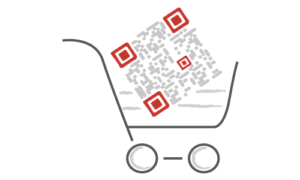
Everybody these days knows what a QR Code is. Yes, the black-and-white squares that can link to an array of information such as website URLs, image, audio, video, PDF file, and simple text.

QR Codes aren’t popular just in China or other Asian countries. Countries such as United States, UK, Saudi Arabia, Australia, and Canada use QR Codes too.
The wide usage of QR Code across industries such as marketing, education, payments, and healthcare have made them a sought-after technology, especially for print media.
Retail stores are no exception. Retail stores use QR Codes in a number of ways. Here’s a list of 3 uses of QR Codes in retail:
A. Top 5 uses of QR Codes in retail
1. Virtual Stores
The next big thing after e-commerce websites are virtual stores. Virtual stores help busy consumers save time and energy. Some of the most famous virtual or e-commerce stores that use QR Codes are:
a. Amazon Go
In 2016, Amazon launched Amazon Go, a retail store with the ‘most advanced shopping technology’ in US. The store is built around what Amazon call a ‘Just Walk Out’ technology that allows users to walk in the store, pick the items they need and simply walk out. To enter the store, users have to scan a QR Code using the Amazon Go app on their smartphone at the entrance. The amount of the purchase is debited directly from the users Amazon account.
b. Walnut Store
In 2016, an Indian entrepreneur, Preethi Desai, launched the country’s first smart touch-and-feel QR Code grocery store in Bengaluru. The smart store allows customers to purchase grocery by scanning a QR Code using the Walnut store app on their smartphone. Unlike other virtual stores, Walnut stores offer consumers to taste, smell, and feel the product before making a purchase. The products are then delivered to the buyer’s door step.
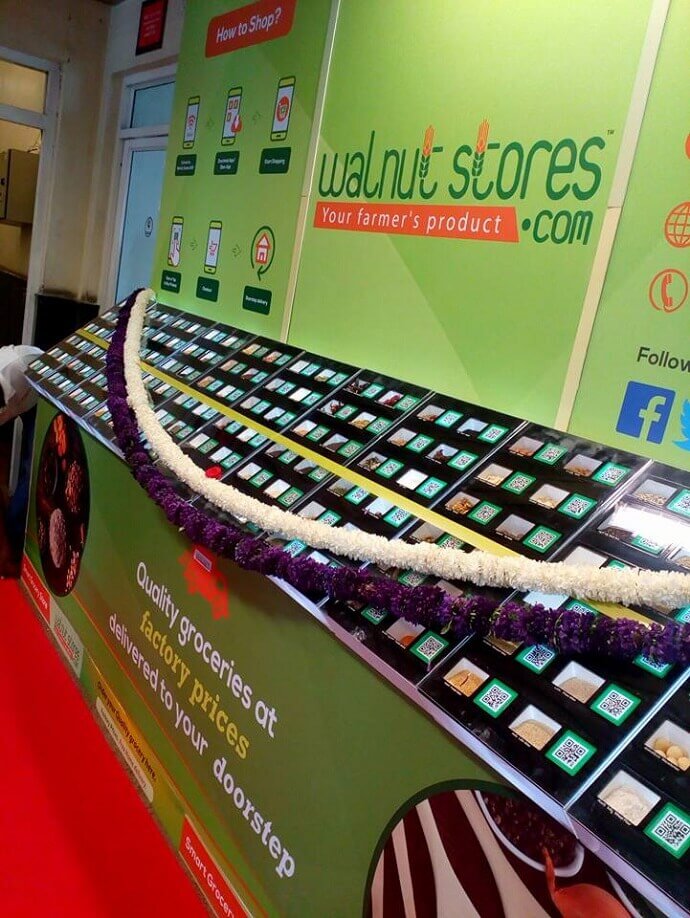
c. Tesco
In 2011, Tesco opened the first smart store in a subway in South Korea. A big screen was set up which featured a wide range of products. People could simply scan the QR Code featured next to each product to add them in their virtual cart in the Tesco Homeplus app on their smartphone. The products would then get delivered at the consumer’s door step.
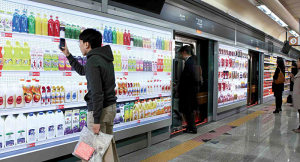
To enhance shopping experience, Paytm launched QR Code-based O2O payments system in India. It allows people to walk into the store, scan a QR Code using Paytm app, and select the items they want.
Retailers across India are also experimenting with similar QR-based shopping innovations. Shoppers Stop’s QR Code strategy offers another interesting perspective on how traditional brick-and-mortar stores are evolving.
2. Payments
From retail giants to street hawkers, QR Codes have made it easy for retailers to accept payments. For the big fish, QR Code payments help in clearing check-out lines faster, for small time retailers, QR Code payments save the excess cost that other cashless payments such as cards bring in the form of extra hardware.
a. Walmart
Walmart is one of the United States’s biggest retail stores that is using QR Codes. It launched Walmart pay in 2015. This feature allowed shoppers to pay by scanning a QR Code. Users could link their major credit or debit cards to their walmart app. Scanning the QR Code debited the billed amount for the card linked to the app. This allowed users and Walmart to save the extra free charged by credit card companies and Apple Pay.
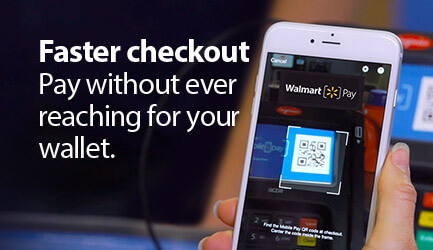
b. Target
Similarly, Target announced the addition of a QR Code payment system at its stores in 2015. Using the Target pay app, consumers could pay for the products by simply scanning the Target QR Code.
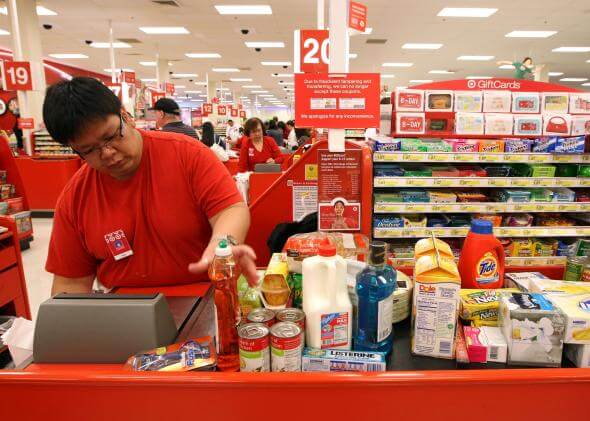
3. Tags and receipts
QR Codes on product tags can list product details, product manufacturing processes. This helps manufacturers build trust with their audience.
- QR Codes on Tags: These provide additional product details, such as manufacturing processes, materials, and care instructions, helping customers make informed decisions.
- QR Codes on Receipts: These can link to feedback forms, surveys, loyalty programs, or even special offers, making receipts more than just a proof of purchase.
- QR Codes on Invoices: Allow customers to access digital records or track their orders, offering convenience and reducing paper usage.
- QR Codes for Price Lists: This became especially popular during the COVID-19 pandemic as it offers a no-touch option for customers to view up-to-date pricing and product details safely.
a. Zara
Fashion and clothing brand Zara has added a QR Code to the price tags of their clothing. Scanning the QR Code leads scanners to a landing page listing the product’s manufacturing details. The page also give scanners information on the different colors and sizes available in the product range.
In May 2018, Zara even rolled out QR Code-based collection points at Stratford store.
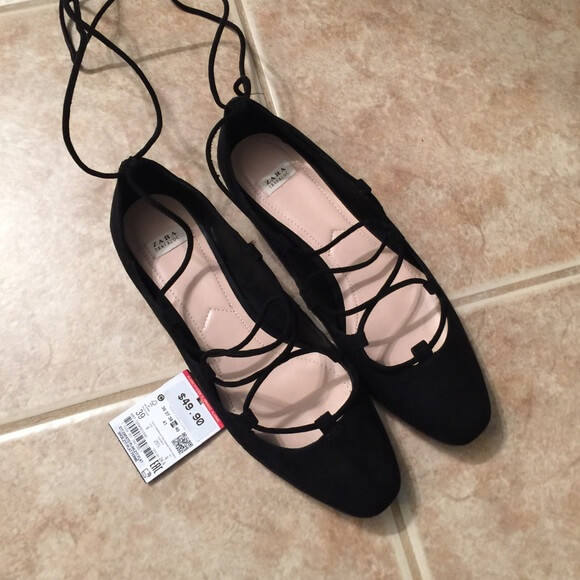
b. Decathlon
In 2018, Decathlon designed Scan & Go app. This is to help people skip the long queues at Decathlon store.
Customers can download the app and scan QR Code on the tag of products they want. QR Code, when scanned, redirects to detailed product information and gives customers the option to ‘Add to cart’.
Once they’ve selected the products they want, they can make payment online after which they get a QR Code. This QR Code simply needs to be scanned at the gate to exit.
Similarly, in feb 2017, Primo app launched in Japan. It allows people to scan QR Code for the products they want to buy. Simple. No waiting at the checkout counter, no hassle with cash and cards.
c. Gaga App
Malaysia’s Gaga Rewards app partnered with retailers to print QR Code on receipts. Customers could scan this QR Code with any QR Code scanning application to get rewards. This saved merchants from handing out membership cards.
4. Directions
QR Codes are also used to help consumers find products easily. This is especially helpful in large stores where consumers generally have difficulty locating items they wish to purchase.
a. Ralph Lauren
In 2012, Ralph Lauren partnered with Harrods, a UK based luxury department store to set up QR Codes in the store. When scanned, the QR Codes led buyers to the section of the store displaying Ralph Lauren’s latest collection. 15 Harrods stores across London displayed these QR Codes.
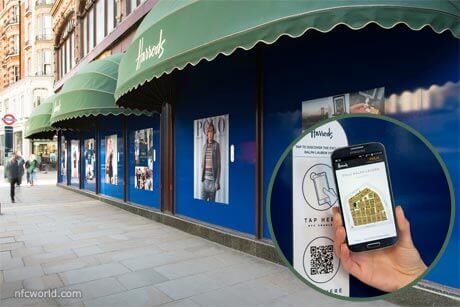
If you are a retailer, using QR Codes can make your store more interactive. Pick a use case that best suits your store and make your customer engagement better.
Also, in 2018, Nike followed a data-driven approach to make shopping experience better for its customers via crowdsourcing.
5. Product Packaging
QR Codes on product packaging are one of the most popular ways to improve customer experience in retail.
By placing a QR Code on labels, brands can offer customers instant access to useful information such as product details, how-to guides, or promotional offers. This helps customers get more out of their purchases without having to search for information.
From everyday brands like Oreo to luxury names like Louis Vuitton, all are incorporating QR Codes into their product packaging.
a. Oreo
Oreo has been using QR Codes in their packaging for years. They often use them for rewards, offers, or challenges. Oreo also taps into collaborations through QR Codes. For example, their limited edition Blackpink packaging included a QR Code. Fans could scan it to get free wallpapers and special video messages from the group.
b. Louis Vuitton
Luxury brands like Louis Vuitton use QR Codes in multiple ways. One example is their use of an app store QR Code on product packaging. The code directs customers to download the Louis Vuitton app. Through the app, customers can access exclusive discounts, making the experience more valuable and encouraging app downloads.
B. Industry-Specific QR Code Applications in Retail
1. QR Codes on Apparel
Today’s consumers are smarter and more informed. They want to know the quality of the materials used in their clothing and verify its authenticity. QR Codes on apparel allow brands to provide this essential information.
For example, a QR Code on a clothing label can link to a page that details the fabric’s origin, how it’s sourced, and how it was made.
A more creative application is adding QR Codes directly onto merchandise like t-shirts. Imagine walking around in a public place with a T-shirt QR Code on your back, many people would scan it out of sheer curiosity.
2. QR Codes for Consumer Goods
QR Codes are becoming a key tool for consumer goods brands to connect directly with their customers. In addition to providing product details, QR Codes on consumer goods packaging can link to eco-friendly initiatives, sustainability practices, or even loyalty programs.
It’s also a great way for companies to keep their customers updated on new launches or limited-time offers without adding clutter to their packaging.
3. QR Codes in Consumer Electronics
QR Codes in the electronics industry have proven invaluable. QR Codes on products like laptops can link to user manuals, installation guides, or troubleshooting steps, making it easier for customers to use their devices right out of the box.
Many brands also use QR Codes to simplify warranty registration and support, improving the post-purchase experience for customers.
4. QR Codes in Footwear
Premium brands are increasingly turning to QR Codes on footwear to authenticate their products. This is especially important when dealing with high-end or limited-edition shoes and sneakers, as customers want assurance that what they’re buying is genuine.
Brands like Nike have taken it further, using QR Codes to promote interactive experiences, such as their “Customize Your Nike Shoe” campaign, where customers can scan the QR Code on Nike products to visit a site that allows them to personalize their footwear.
5. QR Codes in Sporting Goods
The sporting goods industry uses QR Codes to enhance the customer experience in multiple ways.
Beyond providing product information and specifications, brands are incorporating QR Codes to guide users to video tutorials, fitness programs, or maintenance tips for equipment.
For instance, QR Codes on items like yoga mats or golf clubs might lead to personalized training sessions or instructional content.
That’s everything you need to know about how retail stores around the world are using QR Codes for different purposes and industries.